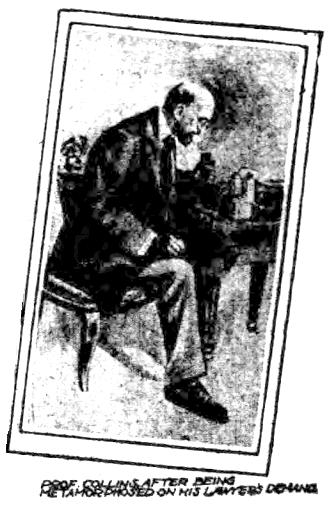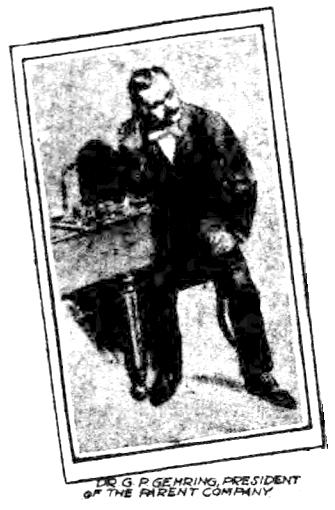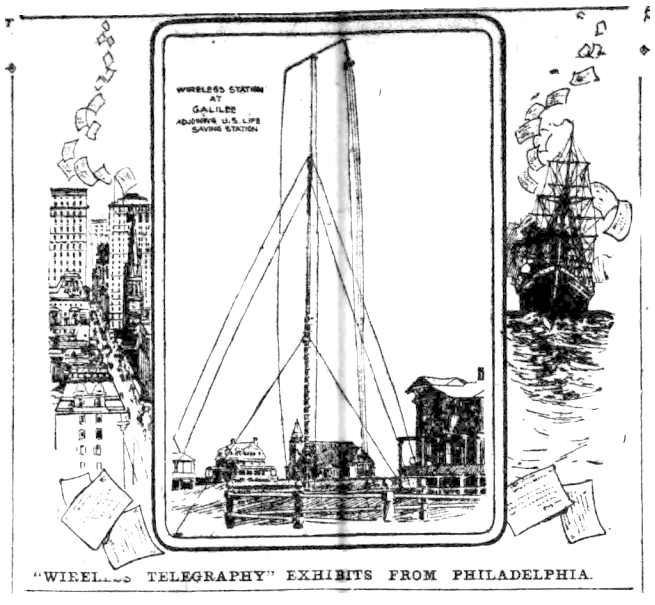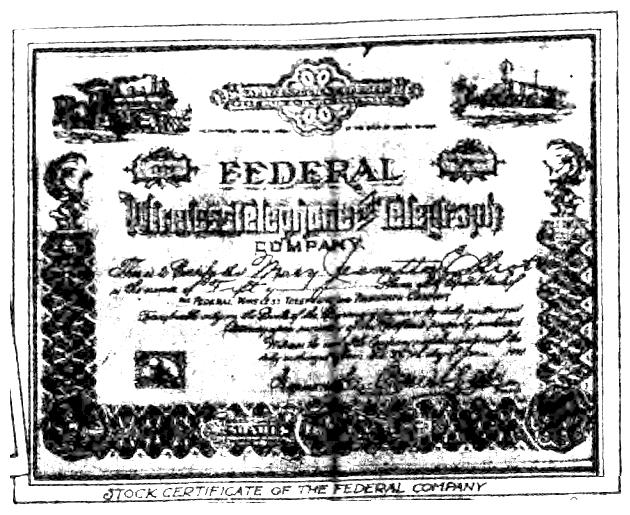 The plant had barely been installed and adjusted when, between five and six o'clock on the afternoon of August 15, Professor Greenleaf W. Picard suddenly discovered that the apparatus was recording on the tape machine at Galilee the telegraphic signal sent out from on board the Lucania to the NEW YORK HERALD'S station at Nantucket Shoals.
The plant had barely been installed and adjusted when, between five and six o'clock on the afternoon of August 15, Professor Greenleaf W. Picard suddenly discovered that the apparatus was recording on the tape machine at Galilee the telegraphic signal sent out from on board the Lucania to the NEW YORK HERALD'S station at Nantucket Shoals.
From that hour until he close the Galilee office, at seven P. M., Professor Picard was in constant communication with the Lucania and the lightship, intercepting all of their messages backward and forward.
Although the new plant had not yet been adequately tested, it had recorded the longest known message ever transmitted by any wireless system.
The next day, August 16, Professors Shoemaker and Picard decided to repeat the test to which the Popoff apparatus had been so unexpectedly subjected.
The Galilee operator was instructed, if possible, to establish communication with the Nantucket Shoals Lightship, 262 miles away. The messages exchanged between the lightship and the Lucania the preceding day were in the international code.
In order to communicate more readily the operator at Galilee signalled the lightship to use the more familiar Morse code. Evidently the HERALD'S operator on the lightship was unable to account for this unforeseen message.
"Who are you? Where are you?" was the startled query he addressed to the unknown operator at Galilee in the Morse code.
"In New Jersey." was the Galilee's prompt response.
"The hell you are!" replied the incredulous HERALD man.
Back and forth flashed the aerial messages for some minutes, the operator on the lightship sceptical and irritated at the suspicion that he was being made the victim of a faraway practical joker, and the Galilee operator and his small audience heartily amused at the outcome of their efforts to mystify their rival off the coast of Massachusetts.
At length, unable to get any definite information about the location and identity of his strange correspondent, the man at the lightship lost his patience.
"Here, you people are interfering with our system. Keep off!" he wired, and with that he would have no more to do with the intruder from Galilee.


